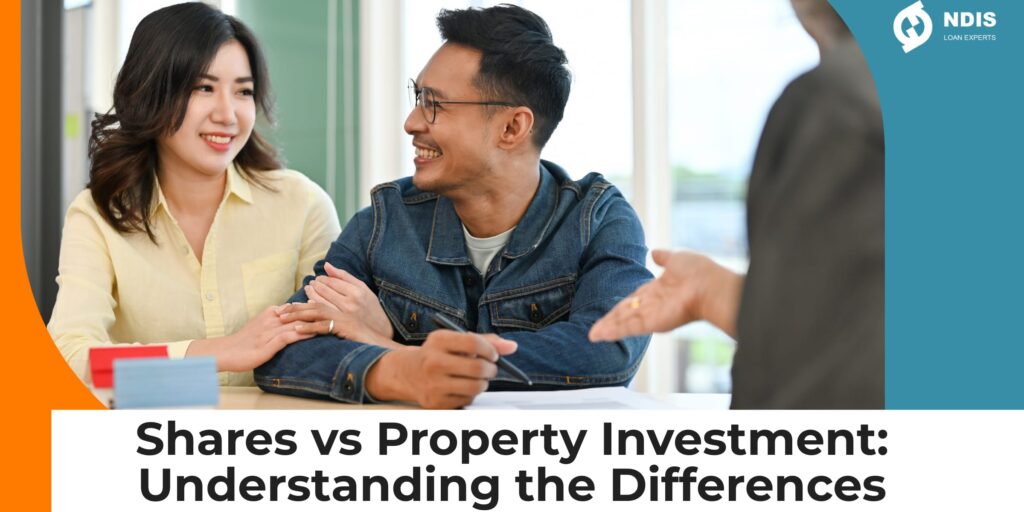Investing is a crucial aspect of financial planning, and choosing the right investment options to fulfil your investment strategy can significantly impact your wealth-building journey. Two popular investment options in Australia are shares and property. Both asset classes offer the potential for growth and income, but they differ in terms of risk, returns, and market dynamics.
In this article, we will explore the key differences between shares and property as investment options.
Shares vs property investment
Before deciding to invest, it is prudent to seek the advice of a qualified financial adviser who will take into account your personal financial circumstances, risk appetite and objectives. Here are some of the differences (and similarities) between shares and property as investment options:
Risk and volatility
Understandably, the risk and volatility of potential investment options is one of the many factors weighed up by investors.
Shares
Investing in shares involves buying ownership stakes in companies listed on the stock market. Share prices can fluctuate significantly due to market conditions, economic factors, and company-specific events. Investing in the stock market can produce income (in the form of dividends or distributions) as well as capital growth potential over time.
Property
Investing in property typically involves purchasing residential or commercial real estate. Property prices also experience fluctuations. The property market is influenced by factors such as supply and demand dynamics, interest rates, and economic conditions. Similar to shares, property investment also provides the opportunity for income yield (typically in the form of rental income) as well as capital growth opportunity.
Accessibility and liquidity
How accessible or easily sold (referred to as ‘liquidity’) investments are is often a key consideration for investors.
Shares
Investing in shares is relatively accessible, especially with the advent of online trading platforms. Investors may find buying and selling shares to be straightforward, allowing for liquidity and the ability to react quickly to market changes. Buying and selling shares on the stock market often comes with transaction costs, such as brokerage fees or professional fees if you use the services of a stockbroker or financial planner.
Property
Investment properties often require substantial initial capital outlay (or the requirement to borrow money), which may be perceived as a barrier for some investors. Property transactions involve legal processes, such as conveyancing, which commonly require professional assistance. In terms of liquidity, property investments are less liquid compared to shares, as it may take time to find buyers or tenants and complete the necessary paperwork for sale. This is why investors commonly use property as a long-term investment.
Tax considerations
Both property and share ownership come with tax considerations. Income generated from investments is typically counted towards the investment owner’s assessable income. The investment is also subject to Capital Gains Tax (CGT) upon its disposal.
However, there may also be some tax benefits such as capital gains tax (CGT) discounts, franking credits and tax deductions for the costs associated with the investment. A qualified tax practitioner (such as an accountant) is best positioned to assess the tax impact of the investments you choose, as your personal circumstances will affect how your investments are treated for tax purposes.
Should I purchase an investment property or start a share portfolio?
As we mentioned earlier, the choice between property investments or investing in the share market is a decision that is best guided by a qualified financial adviser. In fact, a diverse combination of both asset classes may be what’s best for your investment portfolio.
If you have made the decision to join the league of property investors making a difference in the lives of Australians living with disability, we are excited to work with you to find the most appropriate finance solution. Connect with the NDIS Loan Experts team to find out more about how we can help finance your journey to becoming an SDA property investor.


